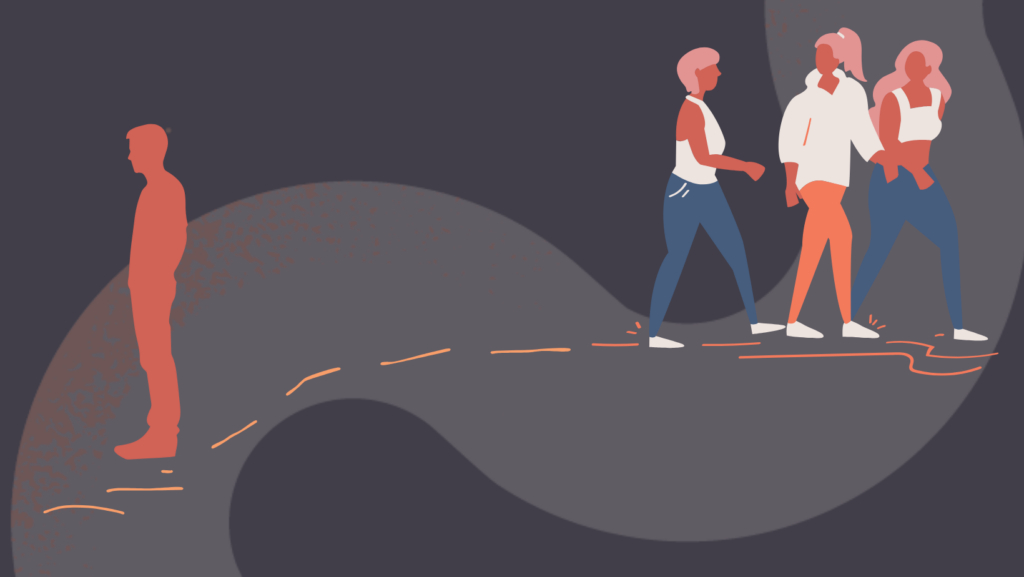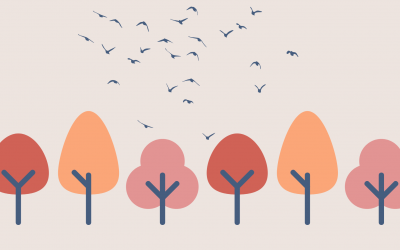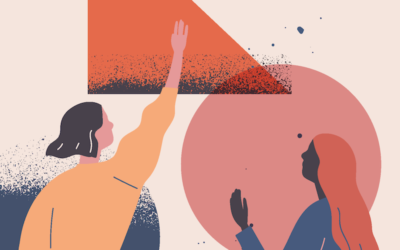On the morning after the night before, David Robinson offers a Relationships Project perspective on the US presidential election.

A friend messaged me on the morning after the US election: “So what are you going to do now?”
He has always been sufficiently interested in our work to challenge and question, constructively and regularly, but never entirely convinced that a better understanding of relationships, the good the bad and the ugly, provides us with all the clues that we need to build a better world.
I took a while to compose my reply: “Same thing. Only better. And more.”
A broken caravan
The American Social Capital Survey was published a couple of months before the election. The picture it painted foretold the result:
“American social and civic life has declined by every conceivable measure since the mid-20th century. Today’s Americans have fewer civic opportunities—that is, places, institutions, groups, programs, and activities in which they can experience community life. Americans participate in organized activities less often and join fewer community groups than they once did.
Relatedly, Americans have smaller social networks and fewer friends, and they spend less time with their friends, neighbors, and family members.”
We have often quoted Surgeon General Vivek Murthy’s unequivocal assertion that the United States is facing an “epidemic of loneliness and isolation” but if relationships have declined dramatically, in quality and quantity, across American society in recent years the drop has not affected everybody equally.
“Americans with college degrees often reside in communities with abundant civic opportunities and thriving civic cultures. They participate in associational life at high rates and have robust social and friendship networks. In contrast, the relational lives of Americans without college degrees have contracted dramatically—compared to Americans with these degrees today and without them in the past”.
The survey paints a picture of relational poverty as both a consequence and a cause of structural inequality. We see the kind of “broken caravan” with which we are already familiar on material poverty. The camels at the front moving so much faster than those at the back that it eventually ceases to be one caravan, one society.
“Civic opportunities are becoming stratified along educational lines. Americans with a high school education or less are more likely to live in civic deserts, lacking …. hubs of community connection. Partly as a result, these Americans are less likely to participate in associational life and more likely to be socially isolated.”
The promise of Trump
You don’t need a degree in psephology to link these numbers, this picture, to the election results on Wednesday. Overwhelmingly it was the most isolated that were most attracted to the promises of Trump. 24% of those that didn’t go to college – a key Trump constituency – say that they have no close friends. Zilch.
Neighbourhoods, cities, nations are built from the aggregation and interweaving of countless personal relationships. When relationships work well, we thrive individually and collectively. When they decline and fail, it is not only the health and wellbeing of the individual that suffers. Entire communities are left behind and left out, distrustful and polarised – fertile territory for xenophobic populism.
That which has made loneliness a “21st century epidemic” has also made Donald Trump the 47th President.
Progressives may have been surprised by the election result, just as progressives in the UK were blindsided by the Brexit vote, but it isn’t a mystery, and it isn’t only an American phenomenon.
If the foundational bonds are inadequate or dysfunctional, anywhere, then so inevitably is the national discourse, unstable and fractious. Trump is the flower in the buttonhole of the invisible man.
We can do better
None of this is irreversible, not immediately, of course, but over time.
We imagine an education system where relational literacy is the fourth R, thoroughly and systematically taught from nursery to university.
A world where no professional training is complete without the relational component, from basic proficiency to depth and excellence.
A place where associational life is valued and prioritised for planning and spending.
A time when our leaders, at every level, put relationships first, systematically, and our organisations, large and small, are institutionally relational.
“Hope is a discipline” wrote Marianne Keba. “A practice”. We know how to do these things because people across the world are doing them already. We need to do them better, and we need to do them more.
Related reads
Plant trees and stir the soul
In brief In this blog, published at the start of 2023, David Robinson offers some personal reflections on working towards deep rooted, sustained social change. He draws out two urgent and important lessons from 40 years working in this space: plant trees and stir the...
The Art of the Covenant
In brief In this blog, Nick Sinclair and David Robinson explore the concept of a 'social covenant' discussed in Danny Kruger's recent report, 'Levelling Up Our Communities', arguing it must be formed around values, trust, morality and relationships. Nick works...
Calling the Mayor to get behind a London Relationships Commission
In brief In the wake of our latest report, 'The Relationship-Centred City', David calls on the Mayor of London to create an environment in which relationships can thrive by getting behind a London Relationships Commission. A couple of weeks ago I asked the Big...



